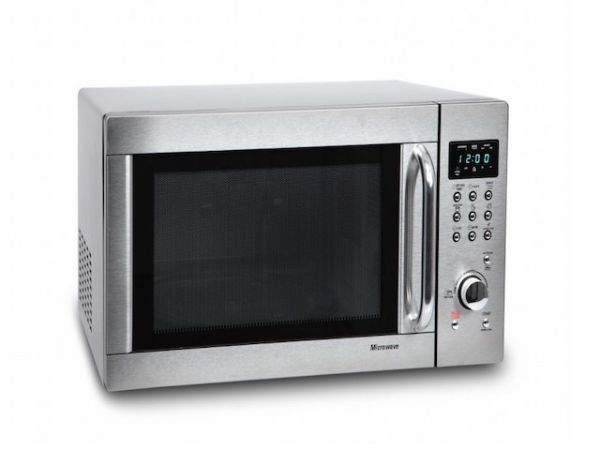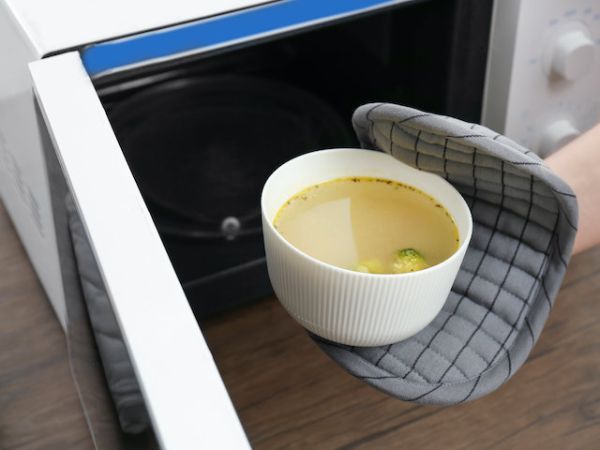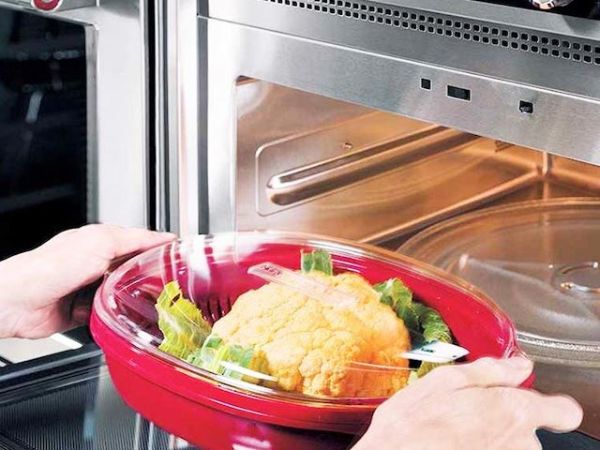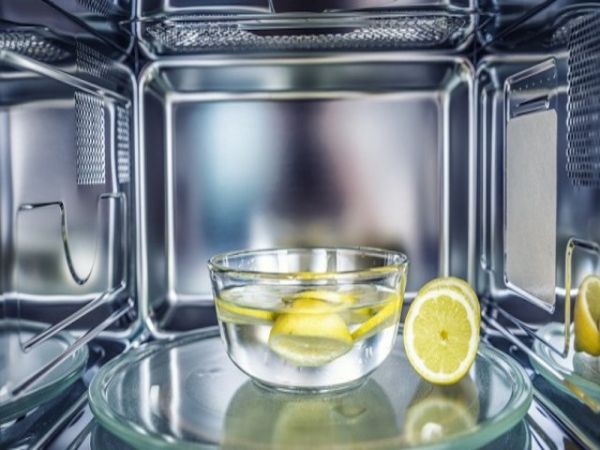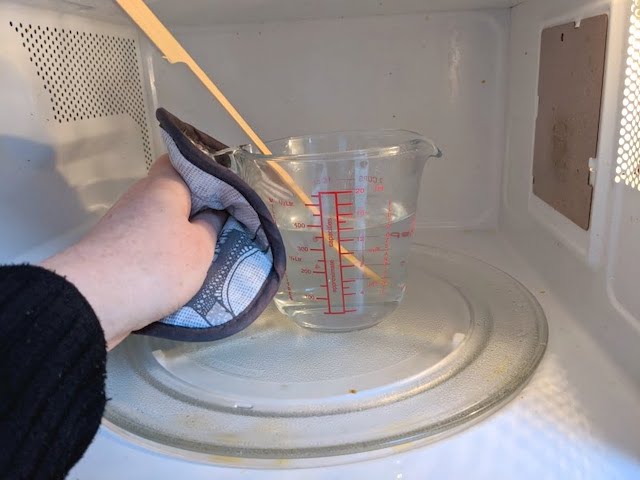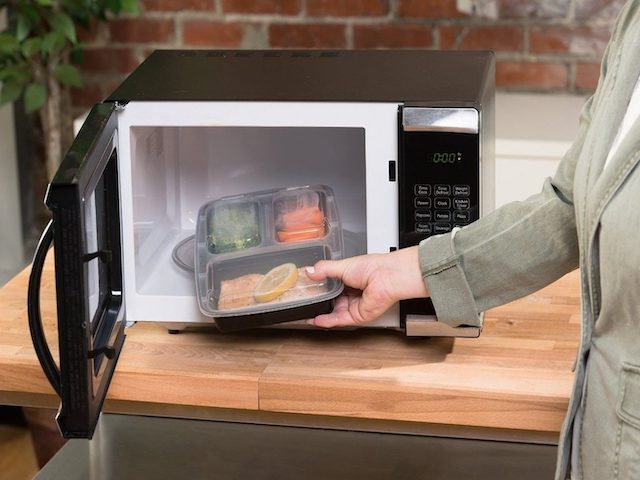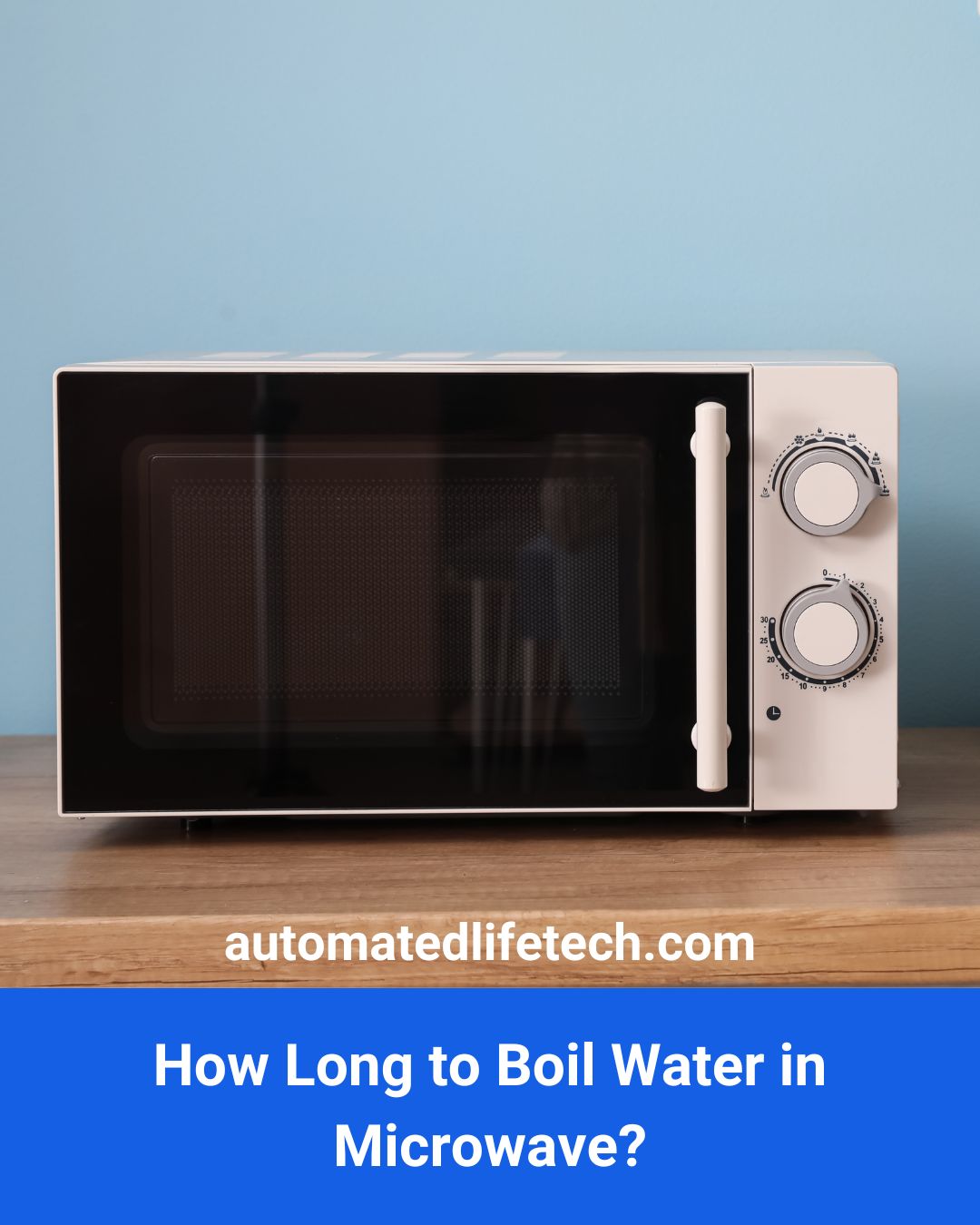Have you ever wondered whether you can safely boil water in the microwave? This article discusses all the things that you need to know to use the microwave safely when boiling your own water.
You can also read here about whether Tupperware is microwave safe. If you are interested in buying a microwave, you can read here about the best countertop microwaves.
Can I Boil Water in Microwave?
Yes, you can definitely boil water in a microwave. It is considered one of the fastest ways to heat your water instead of using boiling water on the stove or using a kettle. However, before using this technique, there are some do’s and dont’s to ensure safety when boiling water.
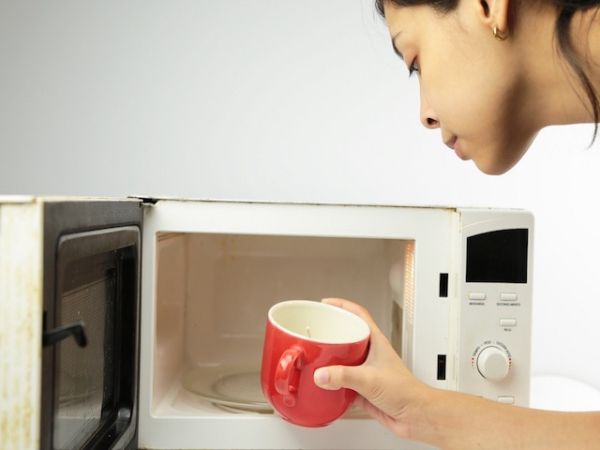
How do I Boil Water in Microwave?
First things first, look for a microwave-safe container in your house. You can opt for a glass or ceramic container that has a note that it is safe to use in the microwave. Pour your water into the container and do not overfill the container to prevent boiled water from boiling over.
You can prevent overheating your water by placing microwave-safe material such as aluminum foil (with some restrictions), a wooden stick, or a microwave-safe tea bag. These materials can absorb too much heat which causes superheating.
Also, you have an option of shortening the heating time to allow you to adjust the heat depending on your liking. It is a preventative measure to ensure that you do not experience superheated water or water exploding out of the container when boiling water.
It is also advisable to check your microwave from time to time. If you notice that water is starting to boil or bubbles are starting to form, stop the microwave and give your water a little stir with a coffee stir stick to distribute the heat.
Once you are done, always use your oven mitts or a towel when handling hot liquids in the microwave. This is because the container heats up as well and will be hot to touch. This is an important step to prevent burns from happening.
How Long Does it Take to Boil Water in a Microwave?
Most of the time, it will take between 1 to 5 minutes to boil your water. However, this will vary depending on a few factors. Some of these factors include the wattage of your microwave oven, the quantity of the liquid that you are planning to boil, and the timer that is set for your chosen temperature.
Factors that Determine How Long to Boil Water in Microwave
Here are some of the things that you may consider when you boil your water using your microwave oven:
The first is wattage. Most appliances have different wattages. You can choose a higher-wattage microwave to boil your water faster but be sure to keep an eye on it.
Second, the temperature of your water before microwaving water also determines the length of time required to boil water in a microwave. Cold water will require a longer time to boil.
The third factor is how many cups of water you are planning to heat. If you are heating more than one cup of water, it will take a little longer to heat up. Remember that bigger quantities require a longer time in your microwave.
Lastly is the altitude. If you have water in a microwaveable container at higher altitudes, expect to wait a bit more due to the lower atmospheric pressure.
How Long to Boil Water in Microwave with Different Wattages?
The power that is being given out by your microwave may vary depending on its wattage. For instance, boiling 1 cup (250 ml) of room temperature water in a 1,000 watt microwave would take 1 to 1:30 minutes.
Here is a quick comparison on how long it takes to boil your water:
- Using a gas stove1L of water – Boils in 6-8mins
- Using an electric stove1L of water – Boils in 8-12mins
- Using an induction cooktop1L of water – Boils in 5-6mins
- Using a 1500W kettle1L of water – Boils in ~5mins
- Using a 2500W kettle1L of water – Boils in 2-3mins
- Using an 800W microwave1L of water – Boils in 8-10mins
- Using a 1500W microwave1L of water – Boils in 4-5mins
There are also websites that can help you have a quick calculation to determine the boiling time with respect to the amount of water that you will heat up.
What are the Risks of Boiling Water in Microwave?
While boiling water in a microwave is convenient, it’s important to be aware of the risks involved. One major risk is the possibility of superheating which occurs when you use a microwave in heating your meals and other liquids such as water.
Superheating emits radiation that significantly affects the molecules in your water which results in vibrating and generating heat without vaporization. This will often lead to undesirable situations where the water can eventually “explode” or violently boils when disturbed or when something is added to it.
Place microwave-safe objects in the hot water or use shorter heating intervals and stir the water in between to prevent these risks from happening. Moreover, be more cautious when taking out your hot container to avoid burns on your skin or spilling it on your body.
Another risk is the potential for the water to boil over when removed from the microwave. The water can become unstable and quickly bubble up, causing burns if it spills. Always use oven mitts or a towel when handling the hot container to protect yourself.
What Container Should I Use?
Microwave-safe containers must be your go-to products if you often use your microwave for heating purposes. Those hot containers that are made up of glass and ceramic are generally safe to use. Glass and ceramics are less likely to give out harmful chemicals that are not good for your body or cause sparking in the microwave that can cause a fire.
Additionally, it is recommended to avoid metal containers because they can result in arcing and later on produce sparks. Also, plastic-made containers are not advisable because they can melt or leach harmful properties into the liquid when they are exposed to high temperatures.
Safety Precautions to Boil Water in Microwave
When it comes to safely boiling water while in a microwave, the safety of everyone should always be a top priority. These precautionary measures can help you prevent any accidents and problems along the way:
- Choose a container that is microwave-safe. It can withstand high temperatures while giving you the outcome that you want. Do not use metal and plastic containers because they are not good for your health and may often cause accidents.
- Determine the proper amount of liquid that you will place in your container for heating purposes. Do not overfill it.
- To prevent bubbling or boiling it, opt for shorter intervals when using your microwave. You can stir it in case you want to distribute the heat evenly. This is recommended for both solids and liquids.
- Always remember to handle everything with caution especially if there is heat involved with regard to your appliances at home.
Common Mistakes People Make When Boiling Water in the Microwave
One of the common mistakes when boiling water in the microwave includes using non-microwave-safe containers. It is also common to heat water for too long causing it to overheat.
Therefore, it is important to put a microwave-safe object that can help distribute the heat in your water to prevent superheating. It is equally important to monitor and check your water regularly. Once you notice signs of boiling, pause and stir it.
Ensure you use oven mitts or towels whenever removing the container because the container or cup will be hot. This is to avoid from getting burnt.
FAQs on Boiling Water in Microwave
Is it Safe to Boil Water Using Microwave?
Yes, it is convenient and more efficient if you are planning to heat your food and hot liquids only for short periods. However, there are still some risks that you need to watch out for while using this method.
To minimize the possible risks such as overheating, try this. A wooden spoon, stick, or tea bag is considered a microwave-safe material to be placed in the water when you want to heat it. These objects provide nucleation sites for bubbles to form, which reduces the chances of superheating.
How Long Does it Take to Boil 4 Cups of Water in Microwave?
If you are planning to boil around 4 cups of water in a microwave, it can vary depending on the wattage of your microwave and the starting temperature of the water.
On average, you will have to wait for around 5-8 minutes for your 4 cups of water to reach its boiling point. However, you have to take note that determining the actual time can vary due to different aspects. Remember to keep an eye on the water while it’s heating, and if you notice any signs of boiling or bubbling, you can pause the microwave and give the water a quick stir to help you distribute the heat evenly.
For example, if you use 1000 wattage, it will take around 2 minutes to boil 2 cups of water.
How Hot Can Water Get in a Microwave?
Putting your water in the microwave can get very hot and sometimes it can even reach temperatures which are above its boiling point.
On the other hand, the actual temperature of the water may be affected by different factors such as the type of microwave that you are going to use, the amount of water being heated, and the duration of heating.
Is it Efficient to Heat Water with Microwave?
When you are considering efficiency as a primary goal in your household, microwaves can be quite energy-efficient for heating your water. You can directly use heat energy into the water molecules by means of putting it in the microwave, which can be a quicker option and more efficient than other methods like stovetop heating.
However, you will need to evaluate this option if you are planning to cook meals that require longer periods. It will start to become much less energy efficient.
Putting larger quantities or extended cooking times in your microwave is not recommended hence having alternative methods like an electric kettle, kettles or stovetop may be more energy-efficient.
What Type of Container Should I Use?
If you are still not sure about what container is good for your boiling and heating purposes, you may opt for materials that are made of glass or ceramic which are considered microwave-safe.
Getting kitchenwares that are made from these items is great because they can withstand high heat without being broken or causing issues along the way. Most materials that are not microwaveable safe can emit harmful chemicals that are not good for the body if exposed for longer periods.
Is Heating Water in Microwave the Same as Boiling It?
If you notice a rolling boil while microwaving water, put it to pause and stir it. It is important to note that whenever you microwave water to boil, ensure that you don’t put too much water as it may spill inside the microwave.
Boiling water refers specifically to when the water reaches its boiling point, which is around 212°F (100°C). At this rate, the liquid will start to have bubbles and enter the phase of transition from liquid to gas.
When you heat water in the microwave, the glass or container heats up as well. Hence, the convection process does not occur and water doesn’t heat up evenly. Water at the top ends up being hotter than the liquid at the bottom, causing an uneven temperature across the glass. [1]
So if you are after a good cup of tea, setting the right uniformed temperature is important and in this case, microwaving isn’t the recommended option. Therefore, there are differences between microwaving water and boiling water.
Does Water Boil Differently in the Microwave?
Yes, you may experience a difference when you put your water inside the microwave to boil compared to the traditional stovetop boiling. In using a microwave, you may encounter moments wherein your water can be superheated. It will be heated above its boiling point without bubbling which indicates that it is already boiling.
Superheating can occur if you are using microwave ovens to heat your meals and drinks. It emits radiation that affects the molecules in your water which results in vibrating and generating heat.
Whilst boiling cold tap water on a stovetop, heat starts from the bottom. As the liquid warms up at the bottom, it becomes less dense and slowly moves to the top, coming in contact with the cooler part of the liquid. This effectively leads to an even distribution of heat.
Boil Water in Microwave with Confidence
Now that you have read about the intricacies of boiling water in microwave, you will be able to microwave boiling water with confidence. From using microwave safe container to stirring regularly and keeping an eye on your boiling water. These tips will help prevent any accidents from occurring and maximise the use of your microwave at home.
Read here for information on small compact microwaves.
References:
[1] Zhao et al. Multiphysics Analysis for Unusual Heat Convection in Microwave Heating Liquid. AIP Advances (2020)

